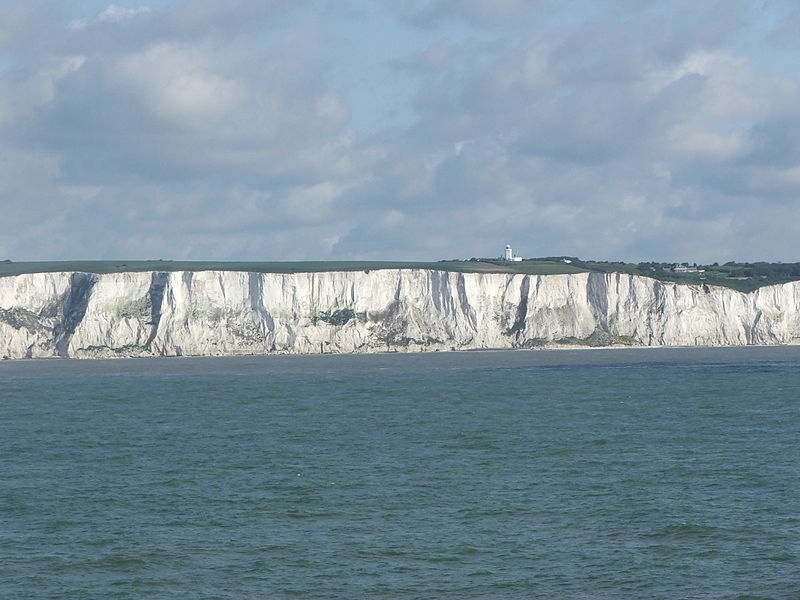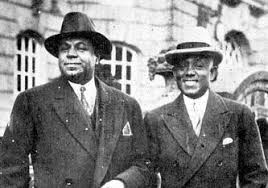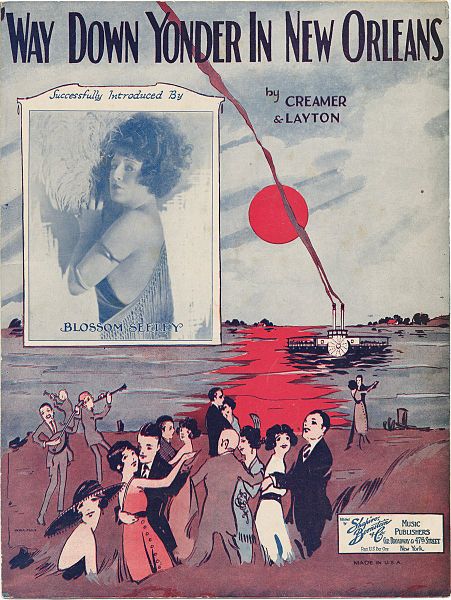
By Pkuczynski [GFDL (http://www.gnu.org/copyleft/fdl.html) or CC BY-SA 4.0 (https://creativecommons.org/licenses/by-sa/4.0)], from Wikimedia Commons https://commons.wikimedia.org/wiki/File:White_Cliffs_of_Dover_3_(Piotr_Kuczynski).jpg
Recently whilst in Bath, I found a song sheet of The White Cliffs of Dover which was made famous by the wonderful voice of Vera Lynn. However, this version featured the once admired but now totally forgotten Turner Layton (1894-1978). Although I had heard of Turner, (my parents had some of his recordings) I knew very little about him. In view of this, I thought I would share my findings with you in this short article as to many people today, his songs are another country.
We all remember Glenn Miller and Vera Lynn, but how many of us remember Turner Layton and his partner Clarence Johnstone? Not many I suppose.
Turner was born in 1894 in Washington DC and was the son of a singer and hymn composer. In 1915, he married his Emma and soon a daughter arrived. Turner enrolled at a dental school but this came to an abrupt end when his father died late in 1916. He was unable to pay the fees and soon after, Turner moved to New York with his family. In a way, this was the break that he had unconsciously been looking for as he was a talented singer and piano player.

Courtesy of: http://jazzagemusic.blogspot.com/2018/07/july-2nd.html Turner Layton (l) and Clarence Johnstone (r) in 1933
Turner was also a brilliant composer and by 1917, he had teamed up with Harry Creamer who wrote the lyrics to Turners music. Both men achieved success with Way Down Yonder in New Orleans and After You’ve Gone which sold over one million records when recorded by Sophie Tucker in 1918. Turner also wrote songs for Al Jolson and Eddie Cantor
and by 1921 was recording himself.
The following year, he formed a partnership with Clarence Johnstone (1885-1953) and this was an immediate success. Turner was a baritone whereas Clarence was a tenor and contemporary reports noted that their voices blended perfectly together. After performing in Harlem and elsewhere they were noticed by the Astorand Vanderbilt families and were soon performing in exotic locations such as Palm Beach and Newport.
 Whilst in Florida, Lord and Lady Mountbatten heard them perform and suggested that they visit England to perform. This was very much a sea change for the duo as Turner in his later years chose England as his home. He lived at 77 Aberdare Gardens in Hampstead for over forty years. However, it was the beginning of the end for Turner and Clarence which I will return to later.
Whilst in Florida, Lord and Lady Mountbatten heard them perform and suggested that they visit England to perform. This was very much a sea change for the duo as Turner in his later years chose England as his home. He lived at 77 Aberdare Gardens in Hampstead for over forty years. However, it was the beginning of the end for Turner and Clarence which I will return to later.
But let us go back a few years to May 1924 when the duo opened at the Queens Theatre in London and like Byron, woke up famous next day. Edward the Prince of Wales was incredibly taken by their music and engaged them to

By Creamer & Layton (Henry Creamer and Turner Layton) [Public domain], via Wikimedia https://commons.wikimedia.org/wiki/File:WayDownYonderInNOBlossomSeeley.jpg Commons
play at St James’s Palace soon after. Because of this royal approval, Turner and Clarence were much in demand and topped the bills all over the country. They decided to stay in England and over the next few years made over one thousand recordings and sold over ten million records. They appeared on the BBC and at West End clubs such as the legendary Café de Paris. They also toured Europe and played in both Berlin and Paris.
However in 1934, Clarence became involved in a highly public divorce scandal and partially because of the interracial angle, this caused a great scandal. It was the end of their partnership and after satisfying their recording and performing contracts, Turner and Clarence went their separate ways. Although they earned a great deal of money (millions by today’s standards), Clarence was not good with money and was soon declared bankrupt. He returned to America and married the woman with whom he had had the affair but it did not last and sadly, he was unable to revive his career. He ended up working as a janitor and in 1939 had to be admitted into a sanatorium and later died somewhere in obscurity in 1953.
Although the duo had broken up, Turner still enjoyed a great deal of success and worked and toured until the 1950s. He appeared in a number of films and during World War Two, he boosted the morale of the troops with a number of concerts and recordings. He retired in 1956 and lived quietly in leafy Hampstead until his death in February 1978.
Turner was remembered by many as a gentle and genteel fellow, cultured and a collector of Augustus John drawings. He was a modest and softly spoken man much liked by those who knew him and unlike Clarence, was careful with his money. His musical estate was inherited by his daughter A’Lelia Shirley and she in turn left the copyright and royalties to the Great Ormond Street Hospital.
I have to admit that I have never found any of Turner’s recordings in the Arcade (although I have not looked very hard), but note that one can frequently find song sheets and 78s dotted around the building. On my last visit the song sheets appeared to be cinema related and were for sale (framed), for a few quid. Whilst not all that rare, these sheets are highly collectable and fun to have and I was very pleased to have found Turner’s one in Bath. When I have a moment, I will most probably frame it and hang it somewhere in my cottage as I know the White Cliffs of Dover quite well as my daughter lives nearby. I am still searching for any of the recordings made by Turner alone or with Clarence. There are many out there, it is just that I have not come across any as yet.
When you hear the music of the interwar period, it takes you back quietly to the days when performers such as Turner and Clarence were top of the tree. It hints of a more innocent period although, the world then was in a bigger mess than it is today. I am still recovering from the awful songs and music of the recent Eurovision Song Contest (half the songs felt that you were dragging your fingers down a dry blackboard). Quite what Turner would have made of it all is open to question. He would have probably smiled knowingly and passed a polite comment.
I hope I have whetted you appetite a little and if you come across a Turner recording, then purchase it and put it on your gramophone and listen to the majestic sounds of a sadly forgotten but much loved musician.
Happy Hunting
